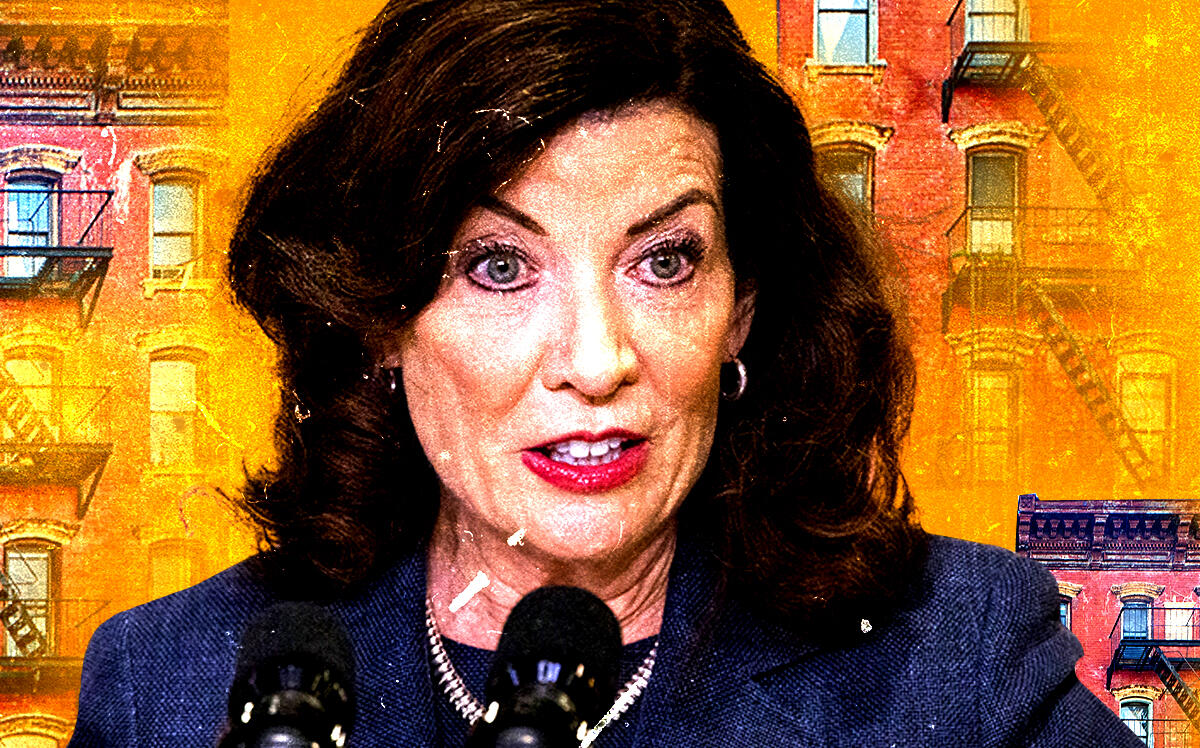In New Jersey, an “unconscionable” rent increase is 25 percent. It is also 5 percent.
Steve Fulop aims to end the confusion over the state’s good cause eviction law.
In an outline of housing priorities released Thursday, the Jersey City mayor and candidate for governor proposed defining what constitutes an egregious rent increase.
“Creating clear boundaries that protect tenants, but remain fair to landlords, will encourage more housing construction for everyone,” Fulop’s plan states.
The law’s vagueness has long caused uncertainty and litigation. Some localities have created their own thresholds for when a tenant cannot be evicted for failing to pay a rent increase. Hoboken, for instance, limits increases to 5 percent for certain apartments.
Of course, creating brightline definitions for unacceptable rent increases creates its own problems. In New York, tenant advocates have for several years pushed for a good cause eviction measure that allows tenants to challenge increases of more than 3 percent or 1.5 times than the regional inflation rate, whichever is higher. The state legislature has failed to pass it.
Fulop’s blueprint also calls for a statewide right-to-counsel bill and a new affordable housing property tax abatement, though details on both are sparse.
He would also reexamine urban areas’ exemption from the state’s Mount Laurel Doctrine, which requires municipalities to provide their “fair share” of affordable housing. Jersey City, Hoboken, Asbury Park and Montclair are spared from the controversial requirement.
Every 10 years, municipalities must update their plans for building enough affordable housing. The next round begins in 2025.
Only about 2,700 housing units are built in the state each year, according to an April report by the Fair Share Housing Center. To meet the need for extremely low income rents, the state needs another 225,000, according to the National Low Income Housing Coalition.
Municipalities that fail to meet their affordable housing obligations would get less state funding under Fulop’s plan. But it frowns on builder’s remedy, a policy that allows developers to sidestep local approvals for a housing project if a certain percentage of units are affordable. Builder’s remedy should be “the exception, not the norm,” the mayor’s outline states.
Fulop would also create a database to track municipalities’ compliance with housing obligations. His plan calls for fast-tracking affordable housing near mass transit and incentivizing municipalities to allow accessory dwelling units.
As mayor, Fulop has overseen an explosion of development in Jersey City. His administration also expanded the city’s inclusionary housing policy and supported the passage of a measure that guarantees free legal representation for vulnerable tenants.
If he is elected in 2025, Fulop would need buy-in from state lawmakers for many of his housing priorities. That is far from a sure thing. In New York, Gov. Kathy Hochul has struggled to secure support for her housing initiatives, one of which was new-housing mandates throughout the state.
Read more



